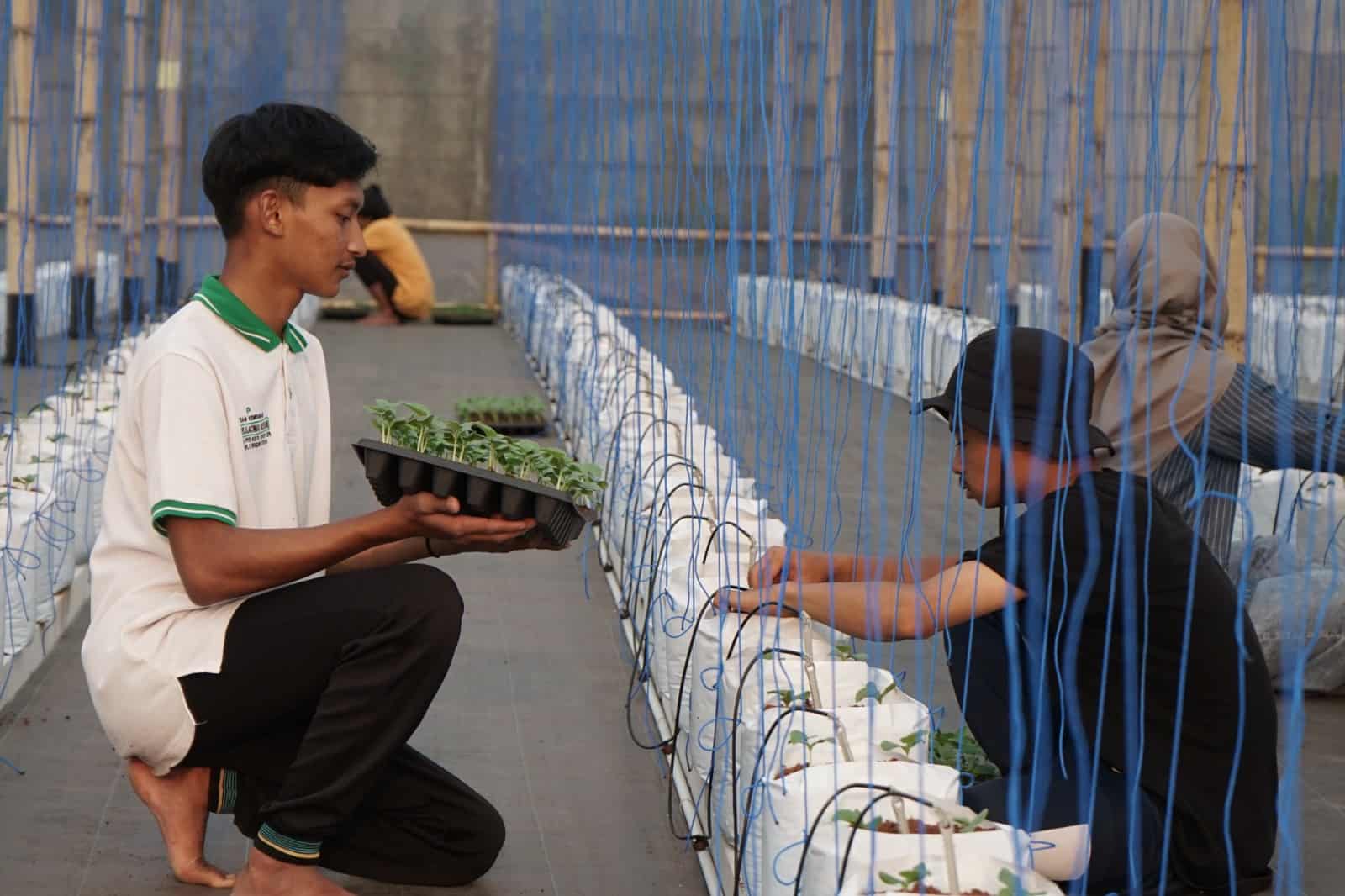SUKABUMI, WEST JAVA — On Wednesday (30/8/2023), Dompet Dhuafa transferred hydroponic melon seeds to planting media or enlargement polybags. This seed transfer was carried out at the Green House of Pesantren Tahfidz Green Lido (PTGL), Sukabumi.
Green House Lido itself is an economic empowerment program located in Dompet Dhuafa’s waqf land area of 2.2 hectares located in Lido, Sukabumi. This green house is deliberately integrated with the Tahfizh Green Lido Islamic Boarding School so that the pesantren can be independent, and also so that the farmer groups are independent and empowered through productive waqf-based agribusiness empowerment.
In the transplanting stage, seeds that are old enough to be sown are then transplanted. This transplanting activity is carried out from the seedling tray to the enlargement polybag. Seeds that are old enough are characterized by the growth of the third leaf.



“The initial stages include preparation of green house sterilization, sterilization of planting media, and preparation of water system and fertilizer. After that, the seeds were sown according to the capacity of the green house. One of the activities carried out on Wednesday is the transplanting activity from the seedling tray to the enlargement polybag which is carried out in the afternoon, so that the plants do not experience high stress levels due to high temperatures,” explained Udi Rafiudi as Dompet Dhuafa’s Waqf Management Partner.
Dompet Dhuafa presents the Green House Waqf Program with advanced agricultural technology, namely fertigation: fertilization through irrigation. This is a method of cultivation by applying fertilizer (nutrients) to plants, given at once to the root zone along with watering the plants, with controlled parameters.
Green House Lido has an area of 400 square meters and takes about 14 weeks to harvest. In the first cycle, Green House Lido chose one melon commodity, the muskmelon type. One type of melon that has a very high selling value.
Baca juga: Productive Waqf: Building a Sustainable Islamic Economy

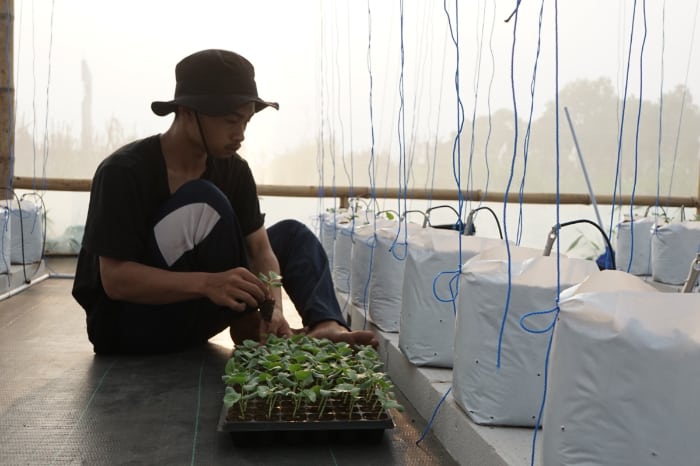
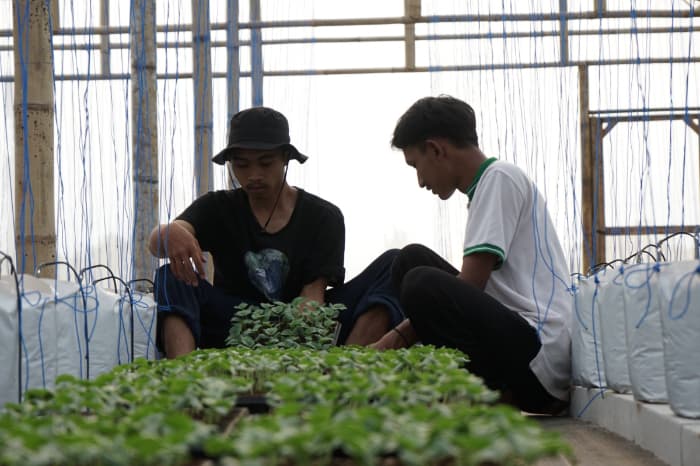
“The type of melon grown at GH PTGL is a type of talent from the muskmelon type originating from Japan. It has a round shape, netting outer skin and yellow flesh, sweetness level above 14 brix,” explained Udi.
The green house is a means of learning for students and empowering local farmers. The main objective is to provide quality opportunities and facilities for prospective santriwan and santriwati. Cultivated by local farmers who are fostered by PTGL, at this initial stage the farmer group consists of three farmers with one coordinator.
After the transplanting process, the next stage is maintenance, including providing nutrients, measuring environmental parameters, and twisting and pruning water shoots.
Also read: Officially Opened! Dompet Dhuafa Attend Qur’an Camp Tahfidz Green Lido Islamic Boarding Schools
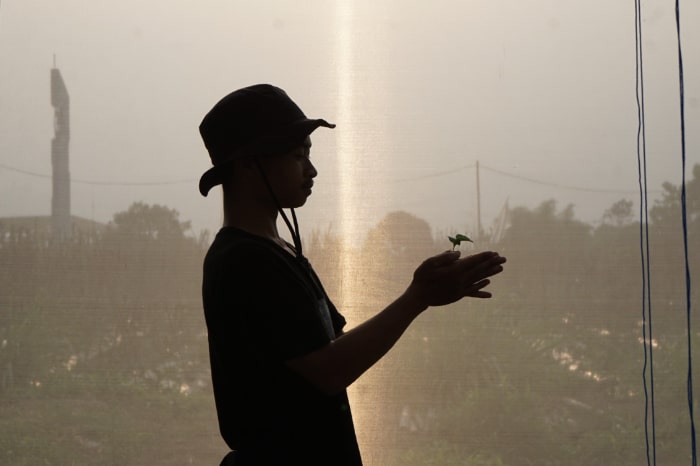
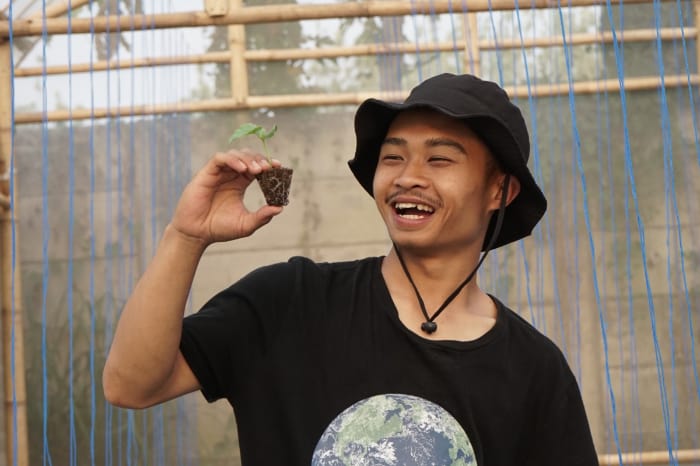

“There are several special treatments to produce premium quality fruit, including planting in a green house with intense water and nutrition, maintaining ideal temperature and humidity conditions for plants, conducting preventive prevention and treatment, be it pests, functions or bacteria. And what needs to be considered in hydroponic melon cultivation, namely discipline in regulating EC in and EC out, water pH, and soil pH. Plant care by pruning water shoots, topping shoots, selecting fruit after pollination, prevention and treatment of plants, “concluded Udi. (Dompet Dhuafa/Anndini/Syafira)



